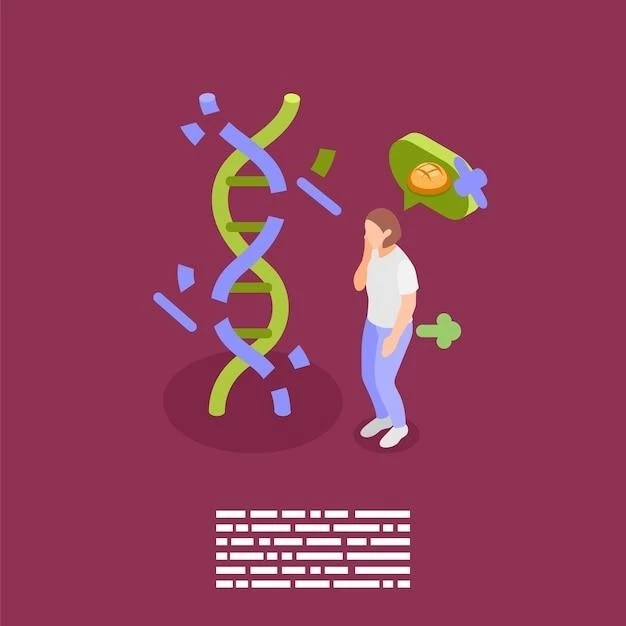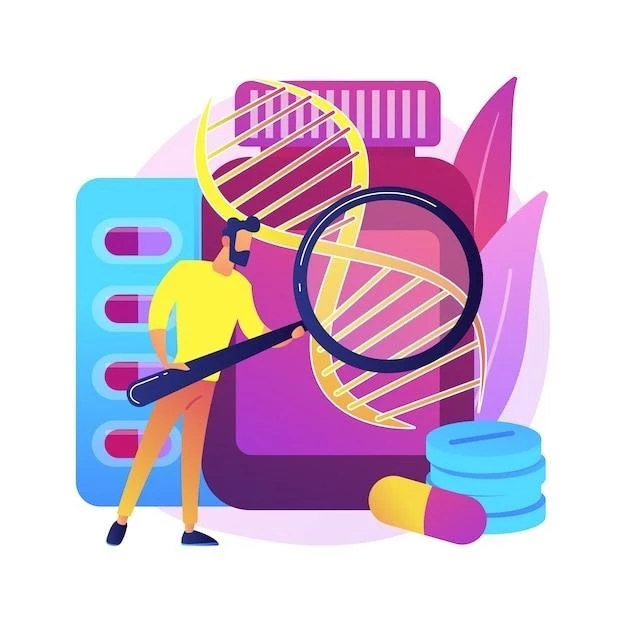Overview of Chromosome 10
Chromosome 10 plays a crucial role in human genetics‚ influencing various traits and susceptibilities to genetic disorders.
Introduction to Chromosome 10
Chromosome 10 is one of the 23 pairs of chromosomes in humans‚ containing a large number of genes responsible for various physiological functions. It is involved in processes such as growth‚ development‚ and disease susceptibility. Understanding the structure and function of Chromosome 10 is essential in diagnosing and managing genetic disorders associated with this chromosome.
Genetic Disorders on Chromosome 10
Chromosome 10 is associated with various genetic disorders‚ including but not limited to trisomy 10q. These disorders can manifest in different ways‚ impacting an individual’s physical and cognitive development. Understanding these genetic conditions is crucial for early diagnosis and appropriate management to improve the quality of life for affected individuals.
Trisomy 10q⁚ Causes and Symptoms
Trisomy 10q is typically caused by an extra copy of genetic material on the long arm of chromosome 10. Symptoms vary but may include developmental delays‚ intellectual disability‚ and distinctive facial features.
Causes of Trisomy 10q
Trisomy 10q is caused by the presence of an extra partial or complete copy of the long arm of chromosome 10 in each cell. This additional genetic material can lead to disruptions in normal development and function‚ resulting in the characteristic features and symptoms associated with trisomy 10q.
Symptoms of Trisomy 10q
Individuals with trisomy 10q may exhibit a range of symptoms‚ including developmental delays‚ intellectual disability‚ delays in speech and language development‚ growth abnormalities‚ facial dysmorphism‚ and congenital heart defects. Each person may experience symptoms differently‚ and the severity can vary widely.
Management of Distal Trisomy 10q
Approaches focus on addressing symptoms‚ early intervention programs‚ therapies to support development.
Treatment Options
Treatment for distal trisomy 10q focuses on managing symptoms and providing support for developmental delays. Interventions may include physical therapy‚ speech therapy‚ educational support‚ and medical monitoring to address specific health concerns that may arise due to the chromosomal abnormality.
Therapeutic Strategies
Therapeutic strategies for distal trisomy 10q involve a multidisciplinary approach to address the diverse needs of individuals with this chromosomal abnormality. These may include early intervention programs‚ occupational therapy‚ behavioral interventions‚ and specialized educational support tailored to the individual’s unique challenges and strengths.
Research Advances in Chromosome 10 Disorders
Ongoing studies aim to further understand the genetic mechanisms underlying disorders linked to Chromosome 10.
Current Research Studies
Current research studies on Chromosome 10 disorders are investigating novel therapeutic approaches‚ genetic modifiers influencing disease severity‚ and potential gene therapies to address underlying genetic causes. These studies play a critical role in advancing our understanding and improving management strategies for individuals affected by these disorders.
Potential Future Developments
Future developments in research on Chromosome 10 disorders may involve personalized treatments based on genetic variations‚ targeted therapies to address specific symptoms‚ and advancements in genetic testing techniques for early detection. These potential developments hold promise for improving outcomes and quality of life for individuals with genetic disorders linked to Chromosome 10.
Support Groups for Trisomy 10q Families
Support groups provide essential resources‚ emotional support‚ and connections for families affected by Trisomy 10q.
Overview of Support Groups
Support groups for Trisomy 10q families offer a platform for sharing experiences‚ information‚ and coping strategies. These groups foster a sense of community‚ provide educational resources‚ and serve as a source of strength and understanding for individuals navigating the challenges associated with Trisomy 10q.
Benefits of Support Groups
Support groups for Trisomy 10q families offer emotional support‚ shared experiences‚ access to resources‚ educational information‚ and a sense of belonging. These groups create a supportive environment where families can connect‚ learn from each other‚ and gain insights into managing the unique challenges associated with Trisomy 10q.

Diagnostic Testing for Chromosome Abnormalities
Accurate diagnostic testing enables early identification of chromosome abnormalities for timely intervention.
Types of Diagnostic Tests
Diagnostic tests for chromosome abnormalities include karyotyping‚ fluorescent in situ hybridization (FISH)‚ chromosomal microarray analysis‚ and next-generation sequencing. These tests help identify specific chromosomal variations and provide valuable information for understanding genetic disorders associated with Chromosome 10.
Importance of Early Diagnosis
Early diagnosis of chromosome abnormalities‚ including those on Chromosome 10‚ is crucial for prompt medical intervention‚ tailored treatment plans‚ and access to support services; Timely identification allows for better management strategies‚ improved outcomes‚ and appropriate care for individuals with genetic disorders associated with Chromosome 10.
Prognosis for Distal Trisomy 10q
Prognosis varies based on individual symptoms‚ severity of condition‚ and access to appropriate medical care.
Outlook for Individuals with Distal Trisomy 10q
The outlook for individuals with distal trisomy 10q depends on various factors‚ including the specific genetic variations present‚ the extent of medical intervention‚ and the individual’s response to treatments. Early diagnosis‚ personalized care‚ and ongoing support from healthcare providers and support groups can significantly impact the long-term prognosis and quality of life for individuals with this chromosomal abnormality.
